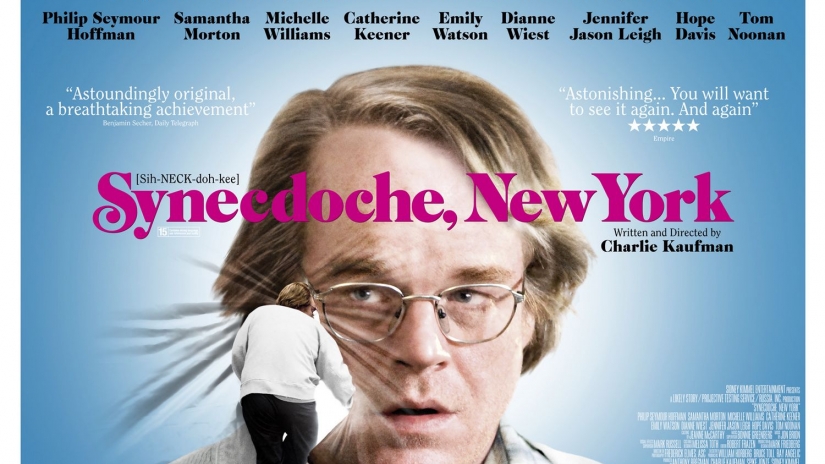
Synecdoche, New York (2008)
“Synecdoche, New York”, is an amazing and challenging film by director Charlie Kaufman.
It is a film full of uncomfortable and courageous truths about human beings, which we constantly try to ignore through illusions and stimulating beliefs of transcendence.
The theater director Caden Cotard (Philip Seymour Hoffman), is a depressed man, whose life fades quickly. He suffers from numerous anxiety crisis, and finds himself increasingly distant from his wife, Adele (Catherine Keener). Caden hits bottom when Adele leaves him for a new life in Berlin, taking with her their four-year-old daughter, Olive (Sadie Goldstein).
Later, Caden intends to mount a monstrous and ambitious theatrical work that will make him immortal, but also increasingly detached from reality. The conclusions of life that the film extracts as Caden becomes detached are punctual and essential.
We are alone in the universe, life does not necessarily have any other meaning than what one contributes to, there isn’t a higher power that ensures that our passage through the world makes sense.
As depressing and nihilistic as those beliefs may sound, the film is an affirmation of life in its own way. As one of its great assertions tells: “You realize that you are not special, you have fought for existence and now you are silently escaping from it.”
The film has brilliant winks to the psychology of the legendary Carl Jung, extracting the essentials of his theory of the search for meaning in the waking-dream state.
We also have intriguing references to Cotard Syndrome (Walking Corpse Syndrome describing the delusion that one is already dead, does not exist, or is putrefying) and Capgras (delusion in which a person beliefs that a friend or other close person has been replaced by an identical clone), two extremely rare and interesting mental disorders.
And finally, the film also seems to have a very solid basis in “The Process” by Franz Kafka, and “In Search of Lost Time” by Marcel Proust, to unsettling masterpieces of modern literature.
by Octavio Carbajal González
